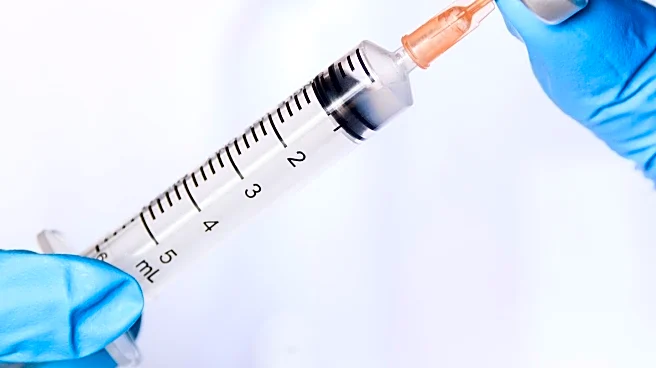What's Happening?
The U.S. Food and Drug Administration (FDA) has issued warning letters to over a dozen companies for selling unapproved and misbranded injectable botulinum toxin products. These companies, primarily based in Korea, as well as in the U.S., China, and Panama,
are accused of marketing products that mimic botulinum type A, commonly known as Botox. The brands involved include Liztox, Toxsta, Botulax, and Wutox, none of which have been approved by the FDA. Experts warn that these unapproved products could pose significant health risks, including infection, facial drooping, and paralysis, as they may not contain actual botulinum toxin.
Why It's Important?
The FDA's action highlights the importance of regulatory oversight in ensuring the safety and efficacy of medical products. The proliferation of unapproved Botox knockoffs poses a threat to public health, as consumers may unknowingly use products that have not been tested for safety. This situation underscores the need for increased awareness and education among consumers and healthcare providers about the risks associated with unapproved cosmetic treatments. The FDA's intervention aims to protect consumers from potential harm and maintain the integrity of the cosmetic industry.
What's Next?
The FDA's warning letters may lead to increased scrutiny of cosmetic products and practices, prompting companies to ensure compliance with regulatory standards. Healthcare providers and consumers are likely to be more cautious in selecting cosmetic treatments, potentially leading to a demand for more transparency and accountability in the industry. The FDA may continue to monitor and enforce regulations to prevent the sale of unapproved products, while consumers may seek guidance from qualified professionals to avoid 'backroom Botox' procedures.
Beyond the Headlines
The issue of unapproved Botox knockoffs raises ethical concerns about the marketing and distribution of cosmetic products. It highlights the challenges in regulating a global industry where products can easily cross borders, complicating enforcement efforts. The situation may prompt discussions about the need for international collaboration to establish consistent safety standards for cosmetic treatments. Additionally, the incident underscores the importance of consumer education in making informed decisions about cosmetic procedures.















